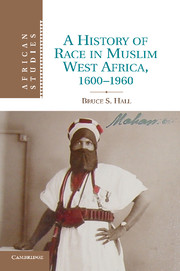Book contents
- Frontmatter
- Contents
- List of maps and figures
- Acknowledgments
- Note on orthography
- Abbreviations used in references
- Glossary
- Introduction
- PART ONE Race Along The Desert Edge, C. 1600–1900
- PART TWO Race And The Colonial Encounter, C. 1830–1936
- PART THREE The Morality of Descent, C. 1893–1940
- PART FOUR Race and Decolonization, C. 1940–1960
- 8 The Racial Politics of Decolonization, c. 1940–1960
- Conclusion
- Index
- Misc-endmatter
- References
8 - The Racial Politics of Decolonization, c. 1940–1960
Published online by Cambridge University Press: 05 August 2011
- Frontmatter
- Contents
- List of maps and figures
- Acknowledgments
- Note on orthography
- Abbreviations used in references
- Glossary
- Introduction
- PART ONE Race Along The Desert Edge, C. 1600–1900
- PART TWO Race And The Colonial Encounter, C. 1830–1936
- PART THREE The Morality of Descent, C. 1893–1940
- PART FOUR Race and Decolonization, C. 1940–1960
- 8 The Racial Politics of Decolonization, c. 1940–1960
- Conclusion
- Index
- Misc-endmatter
- References
Summary
MODERNIZING THE KEL ENTSAR
From the French perspective, the one Tuareg group in the Niger Bend that was the most enlightened and forward-looking was the Kel Entsar. Like their great rivals the Tengeregif, they had fought the French in the 1890s, had suffered from bloody French reprisals, and had lost their leaders to French bullets. But even more than the Tengeregif, who were never fully trusted, the Kel Entsar were crucial French allies in the military defense of the territory against the raids of the Saharan “grands nomades” who often targeted the area around Lake Faguibine where the Kel Entsar were concentrated. When the Kel Entsar chief N'Gouna was killed by the French in 1898, the colonial administration refused to install his son, Muhammad, as chief of this important clerical confederation. Instead, they appointed N'Gouna's brother, Allouda, who was suspected by many Kel Entsar of having betrayed his brother to the French. The Barabish chronicle discussed in Chapter 4 repeats this claim:
In this year [1898] Allouda, the brother of N'Gouna, had made the choice of joining the Christians. In the second half of the year, N'Gouna rode until he reached the Kel Entsar at the site of Faguibine Immajarān. His brother approached him with all the Kel Entsar and N'Gouna struck his brother, reprimanding him for having joined the Christians without being ordered to. So [Allouda] informed the Christians and the soldiers approached [N'Gouna] unbeknownst to him until they had surrounded him. He looked left and right but there was no way to escape.[…]
- Type
- Chapter
- Information
- A History of Race in Muslim West Africa, 1600–1960 , pp. 276 - 315Publisher: Cambridge University PressPrint publication year: 2011



